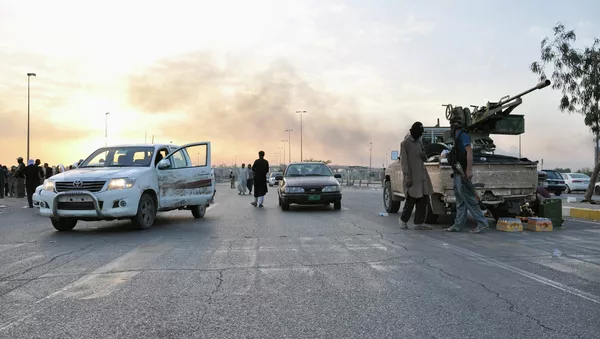The author, known for his book “9/11 Synthetic Terror: Made in USA”, said that all terrorism around the world is created and facilitated by the US government.
These are not Tarpley’s first comments in which he blames the United States for creating the Islamic State. Earlier, Press TV had an interview with Tarpley during which he explained his rationale why he thinks the United States was behind the creation of the terrorist group.
Second, Turkey, a NATO member with a huge army, is right next to the war-town Syria and Iraq, where the jihadists operate. Tarpley asks the important question: why cannot the Turkish Army come into the lawless Syrian and Iraqi territory and simply wipe the jihadists off the face of the Earth in a matter of weeks, especially if the United States and NATO were so keen to destroy the Islamic State?
And lastly, referring to how the jihadist group is using social media and Internet to spread its propaganda and recruit new fighters, Tarpley said there is an interest in not having the Islamic State propaganda shut down online. All major Internet companies are based in the United States and therefore the White House could easily limit, if not close down, the presence of Islamic State on the Internet, if it wanted to.
Although Tarpley’s line of thinking might seem a little too provocative to some, the questions that he asks are nonetheless important. There is certainly a connection between the emergence of al-Qaeda and the American involvement in Afghanistan back in the 1980s. And since al-Qaeda was a forefather of the Islamic State, there might be a possibility of a more intimate relationship between the government of the United States and the jihadists, currently cutting people’s heads off in Iraq and Syria.




